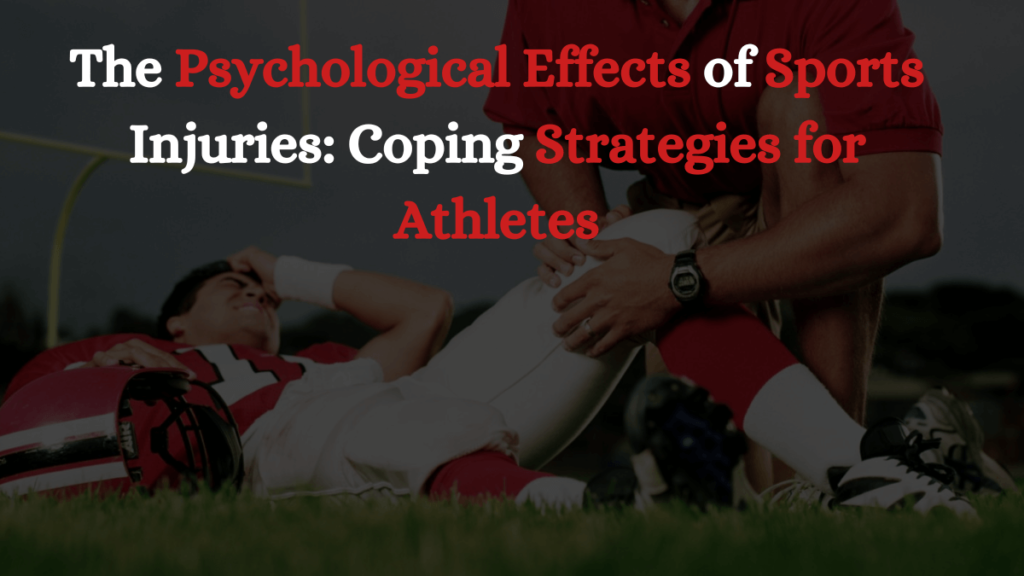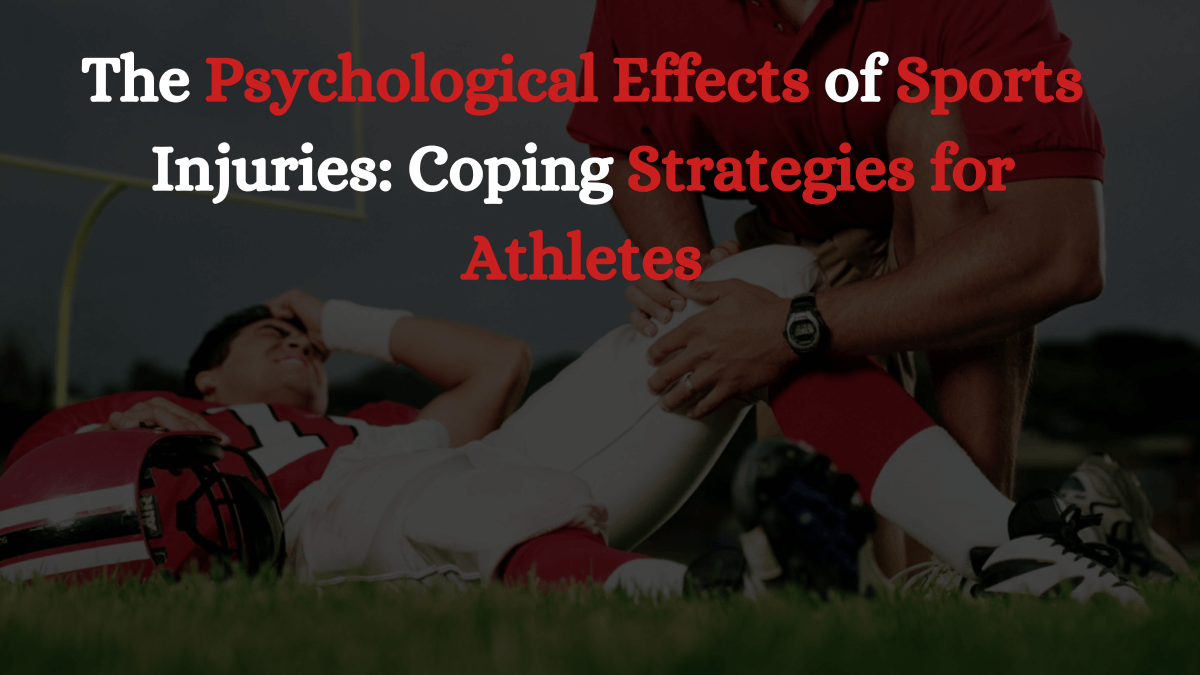In the world of sports, injuries are not just physical setbacks; they can also have profound psychological effects of sports injuries on athletes. From the initial shock of the injury to the challenges of rehabilitation and the fear of reinjury, athletes often grapple with a range of emotions that can impact their mental well-being and performance. In this blog post, we’ll explore the psychological effects of sports injuries and provide coping strategies to help athletes navigate the mental challenges they may encounter along the road to recovery.

Understanding the Psychological Impact
Sports injuries can trigger a cascade of emotional responses, including:
- Shock and Denial: Initially, athletes may experience shock and disbelief upon realizing the severity of their injury. Denial, or the refusal to accept the reality of the injury, is also common as athletes grapple with the implications of being sidelined from their sport.
- Anger and Frustration: As the reality of the injury sets in, athletes may feel anger and frustration, directed towards themselves, their teammates, coaches, or even the circumstances surrounding the injury. These emotions can stem from a sense of loss, disappointment, or perceived injustice.
- Sadness and Depression: Dealing with the physical limitations and uncertainty of the recovery process can lead to feelings of sadness, hopelessness, and depression. Athletes may mourn the loss of their athletic identity, fear the unknown, or struggle with feelings of inadequacy.
- Anxiety and Fear of Reinjury: The fear of reinjury is a common concern among athletes returning to sports after an injury. Anxiety, worry, and apprehension about re-injuring themselves can undermine confidence, disrupt performance, and hinder the rehabilitation process.
- Isolation and Social Withdrawal: Being sidelined from sports can lead to feelings of isolation and social withdrawal as athletes grapple with a sense of disconnect from their teammates, coaches, and the broader athletic community. This social isolation can exacerbate feelings of loneliness and exacerbate mental health issues.
Coping Strategies for Athletes
While the psychological effects of sports injuries can be challenging, there are coping strategies athletes can employ to navigate this emotional terrain:
- Acknowledge and Accept Emotions: It’s important for athletes to acknowledge and accept their emotions rather than suppressing or denying them. Validating feelings of anger, sadness, or fear can help athletes process their emotions and begin the healing process.
- Seek Support: Building a strong support network of friends, family, coaches, teammates, and mental health professionals can provide athletes with the emotional support and encouragement they need during difficult times. Talking openly about their feelings and experiences can help athletes feel less alone and more understood.
- Set Realistic Goals: Setting realistic short-term and long-term goals can provide athletes with a sense of purpose and direction during the recovery process. Celebrating small victories and milestones along the way can boost confidence and motivation.
- Focus on What You Can Control: While athletes may not have control over the injury itself, they can control how they respond to it. Adopting a proactive mindset and focusing on aspects of recovery that are within their control, such as adhering to rehabilitation protocols, maintaining a positive attitude, and staying committed to the process, can empower athletes and promote resilience.
- Stay Engaged: Maintaining a sense of connection to their sport and the athletic community can help athletes cope with feelings of isolation and maintain a sense of identity. This may involve attending team practices, games, or events, volunteering, or finding alternative ways to stay involved in the sport.
- Practice Mindfulness and Self-Care: Engaging in mindfulness practices, relaxation techniques, and self-care activities such as meditation, yoga, journaling, or spending time in nature can help athletes manage stress, reduce anxiety, and cultivate a sense of inner peace and resilience.
Conclusion
Sports injuries can take a significant toll on an athlete’s mental well-being, but with the right coping strategies and support systems in place, athletes can navigate the psychological challenges and emerge stronger and more resilient. By acknowledging their emotions, seeking support, setting realistic goals, focusing on what they can control, staying engaged, and prioritizing self-care, athletes can overcome adversity, cultivate mental toughness, and thrive both on and off the field. Remember, healing is not just physical; it’s also a journey of self-discovery and growth.


